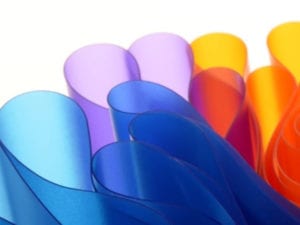Polyvinyl Chloride (PVC) is one of the most commonly used plastics in the world.
Because of its versatility, vinyl plastics have various uses and applications in building and construction, automobiles, appliances and electronic parts, in wire and cable insulation, packaging and in various consumer products. For over 60 years, vinyl has been used extensively in hospitals and the healthcare environment where it has allowed patients and healthcare professionals to access an ever-widening range of medical applications. “Vinyl products offer excellent durability, chemical resistance, low maintenance costs and affordability – making them the top choice when it comes to hospitals, healthcare facilities and other areas where hygiene, reliability, safety and comfort are of paramount importance. Because they retain product integrity under hot and cold temperatures, vinyl products can easily be sterilised. They are highly flexible and minimise interruptions to fluid flow because they do not form kinks in tubes. As a result, approximately 40 % of all plastics-based medical devices used in hospitals today are made from PVC,” says Adri Spangenberg, CEO of the Southern African Vinyls Association (SAVA) – the industry body representing the local vinyls industry value chain. Vinyl products are widely manufactured in South Africa, the two main application areas for medically-approved PVC compounds are flexible containers and flexible medical tubing. “Flexible PVC is considered the material of choice for items such as blood bags and other non-breakable containers. Because the material is soft, it is also comfortable – making it the best choice for use in neo-natal wards for newborn and premature babies, medical gloves and protective sheeting. Although it is light, it is also incredibly strong, durable and almost impossible to tear, yet can be easily be disposed in order to prevent cross-contamination,” Adri explains. When used as floor coverings in hospitals, the seams of vinyl sheets are hot-welded to create a smooth, impervious surface. Because there are no joins or grooves, there is no place where germs can hide and multiply. Vinyl floors can be regularly cleaned and sterilised without compromising the look or quality of the material and have been proven to inhibit bacterial growth. “The versatility and safety of PVC have allowed modern science to advance rapidly in recent years. Developments in this regard include creating blood vessels for artificial kidneys, creating artificial skin for use in the treatment of emergency burns and developing inflatable splints. Blood bags are made from PVC because it allows for blood to be stored for longer periods than if stored in glass containers, while transfusion and intravenous tubing needs to be transparent and flexible. Blister packs for tablets prevent deterioration, assist in dose control and allow visual identification. Bottles and jars made from PVC are shatterproof, whilst overshoes, protective sheeting and tailored covers help to prevent the spreading of germs and infections,” Adri says.Besides being a safe, reliable and cost-efficient material, Adri stresses that vinyl plastic is also recyclable.
“Thousands of tonnes of medical plastic waste is generated daily at hospitals and healthcare facilities around the world. Studies show that only a small fraction of this waste is hazardous, which means the potential for creating a circular economy in healthcare is huge. Because medical PVC is made from a high grade material, it is sought after by recyclers. In South Africa we currently have 33 recyclers who readily accept both rigid and flexible PVC. Between them, they recycled more than 10 000 tonnes of vinyl products in 2018 alone into various items, such as soles for school shoes, gumboots, safety shoes, interlocking floor tiles, traffic cones and irrigation pipes”, Adri explains. SAVA is dedicated to enhancing the growth and protecting the stature of the Southern African vinyl industry. The association’s activities and focus areas are centred around its Product Stewardship Commitment (PSC) – a series of achievable commitments that address the vinyl industry’s environmental issues by specifying sustainable manufacturing, the sustainable and responsible use of additives, closed loop management and a sustainability awareness. Members are required to sign a voluntary commitment to SAVA’s PSC and demonstrate adherence to the goals set out in order for them to be awarded the Vinyl-Dot (Vinyl.) which they are allowed to display on their products, website and marketing material. “We have just concluded our benchmarking survey for 2019-2020 and were thrilled to see a high level of compliance by our industry members. These companies have proven to be leaders in their fields who are committed to safe, sustainable manufacturing practices by meeting international safety and quality standards as specified in SAVA’s PSC,” Adri says. Looking ahead, SAVA believes that vinyl products will continue to play an ever-increasing role in ensuring the health and wellbeing of the public and offering protection to healthcare workers in the frontline. “Vinyl has revolutionised the way we live our modern lives and we anticipate that the demand for vinyl products will increase in the coming years. There are exciting areas of growth as new applications and uses for PVC continue to be developed – especially in the medical field. We encourage all the role-players in the vinyls value chain to sign up as SAVA members to demonstrate their commitment to good product stewardship and to producing products that are safe, responsible and sustainable as we step up to make the most of new opportunities and actively strive to develop new markets,” Adri concludes.







